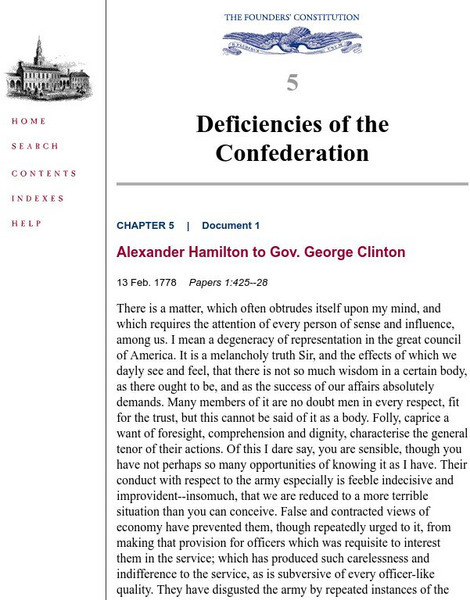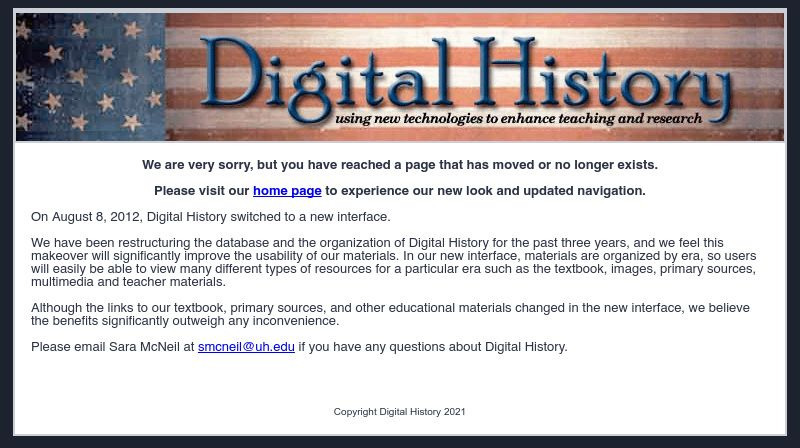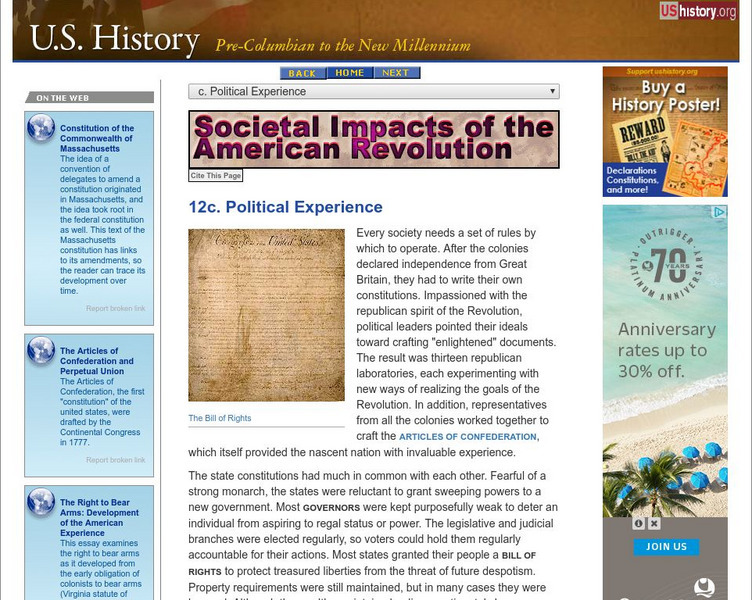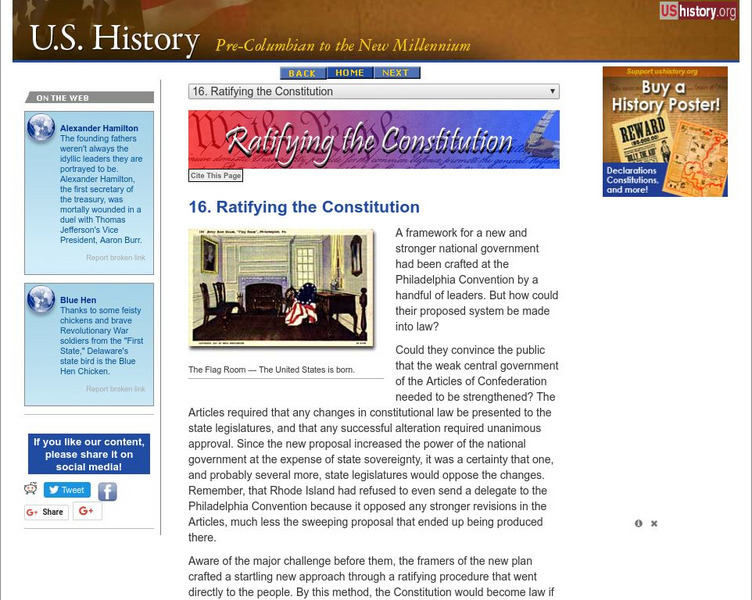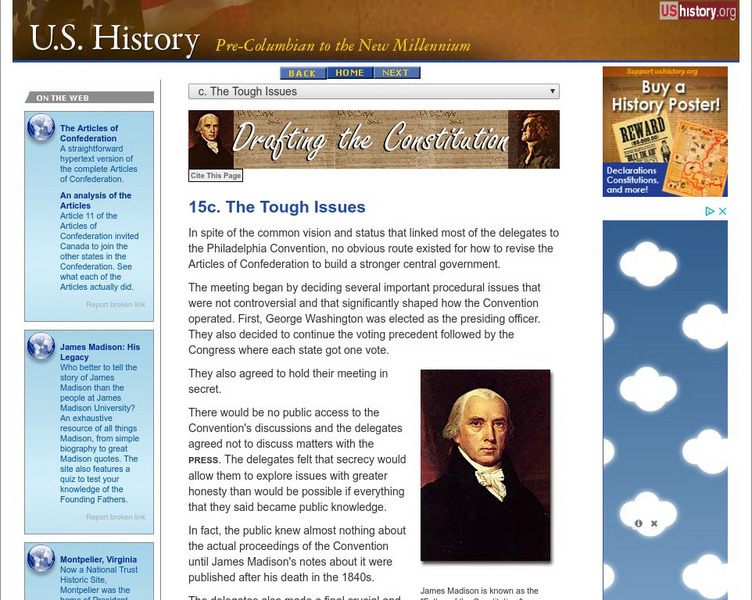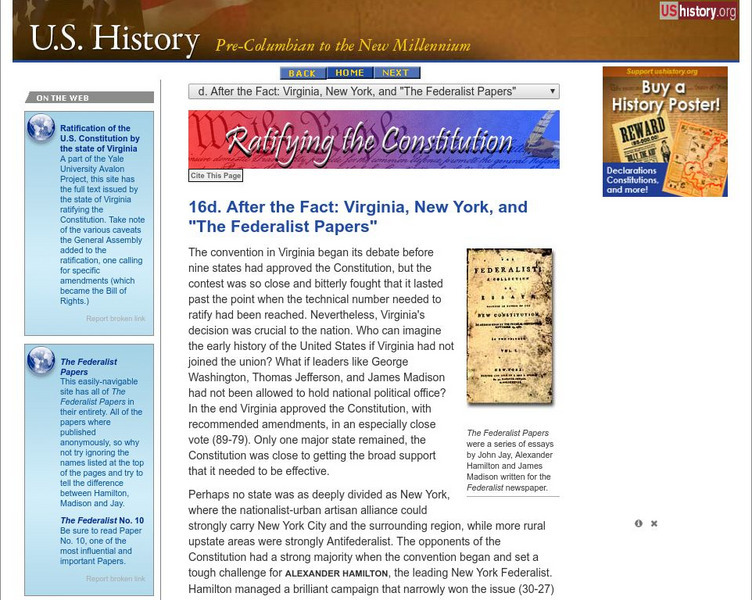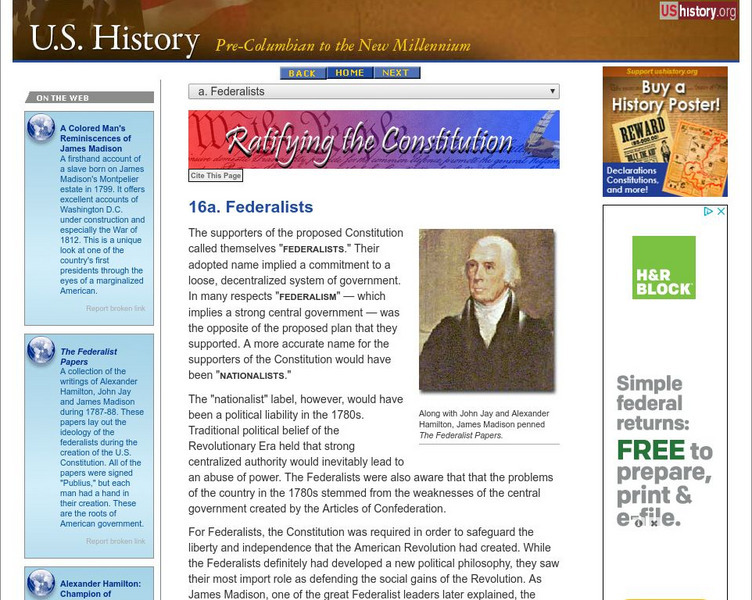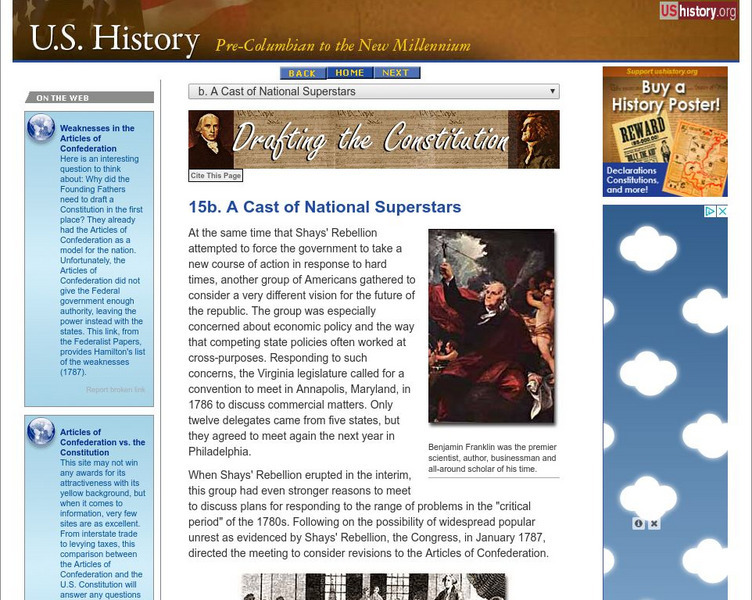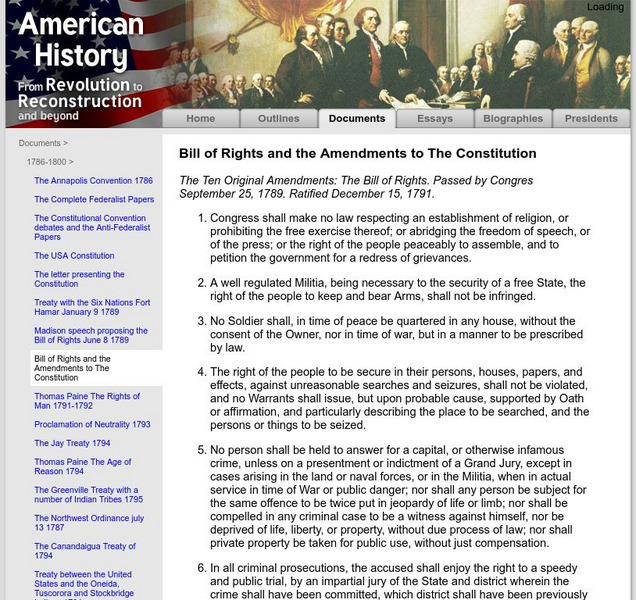University of Chicago
The Founders' Constitution: Deficiencies of the Confederation
The original text of a letter from Alexander Hamilton to Governor George Clinton of New York in 1778 complaining of inadequate material for the U.S. armed forces and perception of weakness by foreign powers.
Digital History
Digital History: Republicanism
The framers of the Constitution had a great distaste for the monarchial society of Great Britain. See how this was reflected in the checks and balances they wrote into the Constitution in an effort to create a working republic.
Travel Document Systems
Tds: Sudan: Government
This is a very current look at the government of Sudan, the attempt at reconciliation between north and south, and the on-going problems in Darfur. Information is from the U.S. State Dept. Background Notes.
US Government Publishing Office
Ben's Guide to u.s. Government: Signers of the Constitution Word Search
A printable wordsearch on thirty-nine of the delegates who signed of the US Constitution.
University of Groningen
American History: Outlines: The Supreme Court
Discussion overview illustrating the structure and powers of the Supreme Court as written in the U.S. Constitution.
US Government Publishing Office
Ben's Guide to u.s. Government: Branches of Government
Students will visualize how the Constitution organized our 3 branches of government and the role each plays in our government. This infographic breaks down the powers of each branch and shows how they perform checks on the other...
Other
Institute for American Liberty: The First Principles of the Constitution [Pdf]
This article contains information about the principles used to create the Constitution of the United States.
US Government Publishing Office
Ben's Guide to u.s. Government: Legislative Branch: The House of Representatives (6 8)
Explores how the House of Representatives was formed, how membership is decided, qualifications, and its special jobs.
US Government Publishing Office
Ben's Guide to u.s. Government: President of the u.s. Requirements & Term
A short paragraph on the requirements for holding the president or vice-president position. There is also a paragraph on the number of terms they can serve.
US Government Publishing Office
Ben's Guide to u.s. Government: President's Legislative Powers
An easy-to-understand discussion on the actual legislative powers of the president and the veto. Includes related links.
Stephen Byrne
History for Kids: United States Constitution
History for Kids provides an overview geared toward elementary age students of the history of the United States Constitution. Includes links to resources for teachers.
US Government Publishing Office
Ben's Guide to u.s. Government: Learning Adventures: Branches of Government
Introduction to a learning adventure on the Constitution and branches of government. Students click on their age group icon to find information on which part of the Constitution spells out the powers of legislative, executive and...
Independence Hall Association
U.s. History: Political Experience
Read about how the state governments in the new American nation served as the laboratory to try out new ideas of governing and treating citizens. See how remarkably similar the ideas put forth in state constitutions were to each other.
Independence Hall Association
U.s. History: Ratifying the Constitution
The delegates to the Constititional Convention produced a new governing document for the new United States. Read about how they determined to take the ratification process to the people of the states.
Independence Hall Association
U.s. History: Antifederalists
The Anti-federalists, those who opposed the ratification of the Constitution, were a diverse group. They did have specific fears about carrying out the precepts of the Constitution. Read about their fears, especially the main one, no...
Independence Hall Association
U.s. History: The Tough Issues
Read about the change of plans when delegates to the Philadelphia convention decided to write a new constitution to replace the Articles of Convention. See the ideas delegates had to address concerns of large and small states.
Independence Hall Association
U.s. History: The Antifederalists' Victory in Defeat
By 1788 eleven states ratified the Constitution, more than enough to put it into effect as the document establishing rules for the nation. Read about the goals of the Federalists in estabilishing a national government and find out how...
Independence Hall Association
U.s. History: After the Fact: Virginia, New Yok, and "The Federalist Papers"
Read about the necessity for Virginia and New York to support the ratification of the Constitution. See what influenced the vote in Virginia and how the legislature of New York was finally convinced.
Independence Hall Association
U.s. History: Federalists
A brief look at the men who supported the new Constitution and the reasons they supported it.
Independence Hall Association
U.s. History: The Bill of Rights
The Constitution spelled out the powers of the national government, but many Anti-federalists felt there should be equally explicit a guarantee of individual rights. Read about the compiliation of what became known as the Bill of Rights...
Independence Hall Association
U.s. History: A Cast of National Superstars
A brief look at some of those who served as delegates to the Philadelphia Convention, which morphed into a constitutional convention. Pay attention to the class of people who made up the delegates.
Independence Hall Association
U.s. History: Unsettled Domestic Issues
The new United States government faced many threats to its success. Read this overview of the possible problems.
Ducksters
Ducksters: Us Government for Kids: United States Bill of Rights
Kids learn about the Bill of Rights of the United States government. The first 10 amendments to the Constitution.
University of Groningen
American History: Documents: The 13th Amendment
An original 13th amendment restricting lawyers from serving in government that was supposedly ratified in 1819 and removed from the U.S. Constitution during the Civil War.
